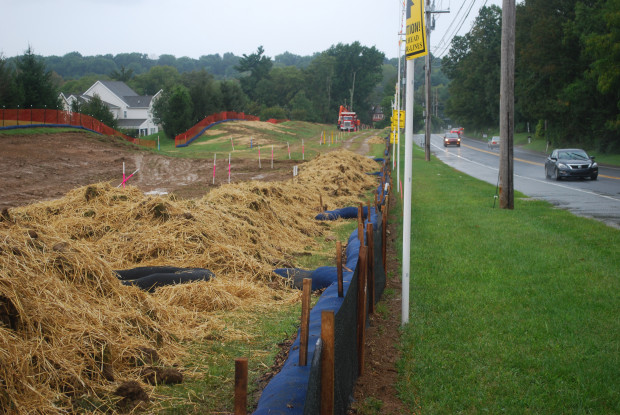If you read the newspapers or watch television news, it appears all the pipeline action is between operators and protesters. There are actually numerous groups in the fight.
Groups Impacted
There are multiple groups which have an interest in pipeline construction in Pennsylvania. Any suggestion that all these groups common interest is easily refuted. Let’s consider some of the groups.
Pro-Pipeline Groups
The most vocal groups promoting pipeline construction are labor groups. The Teamsters and the Steamfitters unions are generally out in force any time a public hearing is held on pipeline construction. By way of example, in the case of public hearings designed to focus on environmental impacts to water resources, most of the public comment is about the number of jobs to be created by the pipeline, and not its impact on water resources.
People and companies with interests in manufacturing and power production encourage construction of additional pipelines, because these create the opportunity for lateral connections, which will provide consistent pipeline based fuel supplies to replace rail or truck supplied fuel.
Owners of Property with Proposed or Actual Pipeline Easements
If you are in this group, you are generally focused on issues of public safety and the economic impact of the pipeline on your real estate. Many individual property owners join larger groups wishing to stop, redirect or otherwise modify the path of pipeline construction. When a pipeline is about to pass through your property, it is important to not solely focus on resistance. If you intend to fight the pipeline to the death, you need a backup plan in case you are not victorious. If you are represented by a condominium or homeowners’ association, it’s extremely important to not be swept along by a wave of resistance, which prevents your Association from planning for all outcomes. The standard, preprinted, easement agreement, which will impact your property, or the community’s open space, was not written to be fair and balanced. Pipeline companies are willing to modify these documents, but it takes an experienced and competent pipeline lawyer to know which changes can be made, and how the changes should be written. This part of the process should be given far more attention than the issue of how much money will be paid. After a few years the money will be gone but the easement will remain. Property owners with stands of trees, stone walls, watercourses and ponds and other important features, should never accept an unmodified easement agreement. Let us emphasize, however, that there is no inconsistency in negotiating easement terms, and additional compensation on the one hand, and participating in anti-pipeline activities.
Owners of Property Near Proposed or Actual Pipeline Easements
Property owners falling into this group are often thought to have no voice in the activity surrounding creation of pipeline easements or construction of pipelines. Most recently in central Chester County, Pennsylvania, construction of the Mariner East 2 pipeline created significant negative impacts on Wells of property owners near but not within the easement areas. These property owners were able to secure connections to public water, as well as compensation for the cost of purchasing public water in the future. We have represented other groups and individuals who have obtained protection for their wells, ponds and other resources even though the pipeline does not go through their property.
Individuals Who Do Not Own Property in Immediate Proximity to Pipelines
Environmental activists, concerned citizens and numerous other people will always have an interest in pipeline locations and safety. The presence of propane, butane and ethane in proximity to homes, schools and businesses has drawn a lot of attention. Community activists point out that the slightest deviation from safety protocols by pipeline operators could result in catastrophe.
By way of example, ethane is extremely volatile. The colorless, odorless gas boils at -128°F. One expert has estimated the blast radius from an ethane explosion to be over 1000 feet. There are numerous homes, schools and businesses within 1000 feet of pipelines carrying the product.
While natural gas is less risky than ethane, the proximity of the pipe to schools and homes is no less serious. We often see news reports of properties destroyed by natural gas explosions.
Many believe attendance at meetings is an effective way to minimize risks from pipelines. Organized groups are far more effective than individuals working alone. The Clean Air Council, Delaware Riverkeeper Network, and the Mountain Watershed Association, Inc. forced a significant agreement with the PA DEP over the Mariner East 2 construction. You can read it HERE.


